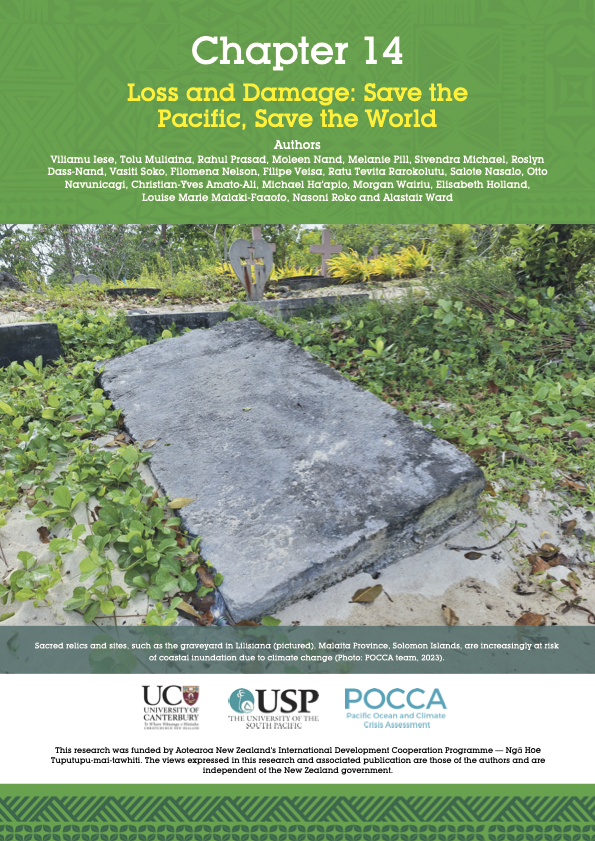
Authors
Viliamu Iese, Tolu Muliaina, Rahul Prasad, Moleen Nand, Melanie Pill, Sivendra Michael, Roslyn Dass-Nand, Vasiti Soko, Filomena Nelson, Filipe Veisa, Ratu Tevita Rarokolutu, Salote Nasalo, Otto Navunicagi, Christian-Yves Amato-Ali, Michael Ha’apio, Morgan Wairiu, Elisabeth Holland, Louise Marie Malaki-Faaofo, Nasoni Roko and Alastair Ward
Abstract
Pacific leaders and climate change advocates have been pushing hard for the establishment of a Loss and Damage Fund (LDF) for years, which was eventually endorsed at COP28. Unfortunately, the amount of funds committed are both far below target and yet to be accessed due to challenges around operationalisation of the fund. Pacific Island communities are exposed to unavoidable loss and damage due to the increased intensity of extreme events and irreversible impacts of climate change. There is limited documentation of stories of real experiences of loss and damage and how households struggle to address them. This chapter addresses this by looking at different case studies showcasing unavoidable losses, especially as they relate to farmers, fishers and Micro and Small Enterprises (MSEs). The chapter also provides examples of different initiatives such as the use of limited savings (meant for education of children), remittances, cultural and social capitals and traditional knowledge to cope and recover after losses. With more unavoidable losses due to climate change, local communities continue to develop adaptation mechanisms to avert, minimise and address loss and damage. Due to the persistent occurrence of destructive climate-related calamities, many communities find themselves in a situation of perpetual recovery in between disasters.
Rights
All rights reserved. This book is in copyright. No part must be republished without permission of the publishers.
